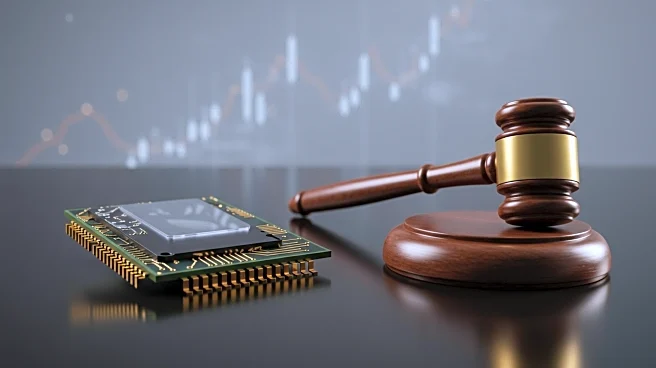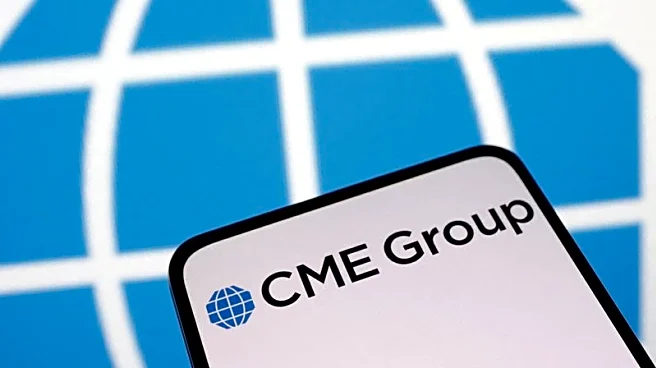What's Happening?
The Trump administration is pursuing a 10% stake in Intel, a significant move that would deepen its financial ties with the computer chip manufacturer. This development follows SoftBank's announcement of a $2 billion investment in Intel, acquiring a 2% stake. U.S. Commerce Secretary Howard Lutnick confirmed the government's interest, which involves converting federal grants into Intel stock. This strategic shift comes after President Trump previously called for Intel's CEO to resign, marking a dramatic change in stance. The administration's interest is driven by a desire to boost domestic chip production, a key focus of Trump's trade policies.
Why It's Important?
The U.S. government's potential stake in Intel could have significant implications for the semiconductor industry and U.S. trade policy. By becoming a major shareholder, the government aims to enhance domestic chip production, crucial for technological advancement and economic competitiveness. This move aligns with broader efforts to reduce reliance on foreign chip manufacturers, particularly amid ongoing trade tensions. The investment could also impact Intel's strategic direction, potentially influencing its turnaround efforts under CEO Lip-Bu Tan. However, the government's involvement carries risks, given Intel's recent struggles and market volatility.
What's Next?
If the deal proceeds, the U.S. government will become one of Intel's largest shareholders, potentially influencing its operations and strategic decisions. The administration's focus on boosting domestic chip production may lead to further policy initiatives supporting the semiconductor industry. Stakeholders, including Intel's management and investors, will closely monitor the government's role and its impact on the company's turnaround strategy. Additionally, the deal may prompt reactions from other industry players and international trade partners, given its implications for global semiconductor supply chains.
Beyond the Headlines
The government's stake in Intel raises questions about the ethical and strategic implications of public ownership in private enterprises. This move could set a precedent for future government interventions in critical industries, particularly amid geopolitical tensions. The decision also highlights the intersection of economic policy and national security, as semiconductor production is vital for technological infrastructure. Long-term, this could influence the balance between public and private sector roles in driving innovation and economic growth.











